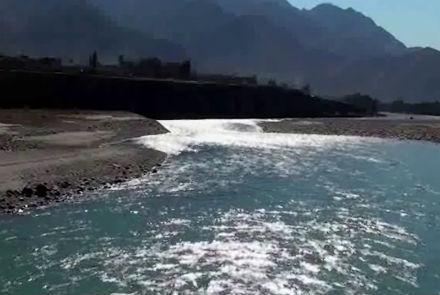The Ministry of Energy and Water (MoWE) on Tuesday said that it has considered a number of programs for better management of country’s water resources as it has major implications for the national development and economic prosperity.
“We cannot contemplate defeat in the preservation of our water resources. If we lose and waste our water resources, then there will no opportunity to retrieve it,” said minister of energy and water Ali Ahmad Osmani.
CEO Abdullah Abdullah has also stressed the need for better management of water resources in the country to guarantee Afghanistan’s development in the future.
“If the necessary attention is paid to water management, we can guarantee the future of our country, the future of next generations, our children and future builders,” said CEO Abdullah Abdullah.
Afghanistan has major water resources but the country is not using its water effectively. The country has the capacity of using only 36 percent of its water and rest is flowing into neighboring countries.
The scale of surface water in Afghanistan is estimated at 49 billion cubic meters with 18 billion cubic meter of underground water.
Economic experts say that water management in the country could help Afghanistan to leverage its economic programs and boost the agriculture sector, saying this would also help Afghanistan to be self-reliant.
More than 3.5 million hectors of land which are suitable for agriculture are not utilized today.
“If we adopt the best management practices of our water resources, this will help us to get self-reliance. We can also reach a deal with our neighbors about the waters we have,” said minister of agriculture and irrigation Assadullah Zamir.
Iran, Pakistan, Uzbekistan and Turkmenistan are among the key neighbors of Afghanistan who get a lot of advantage from five river basins in Afghanistan.
“So far there is no an agreement with other countries about the water resources of Afghanistan. There should be an agreement in this respect and negotiations must start to achieve this. These agreements should not be signed for a long term basis, they should be for a twenty- or thirty-year period,” said economic expert Qais Mohammadi.
President Ashraf Ghani said on Thursday at the National Land Conference in Kabul that Afghanistan's socioeconomic stability and future development was directly linked with focused management of land and water resources.
Participants at the conference asked the Afghan government to review water policy and laws, establish more dams to control the waters and further develop water basins.

